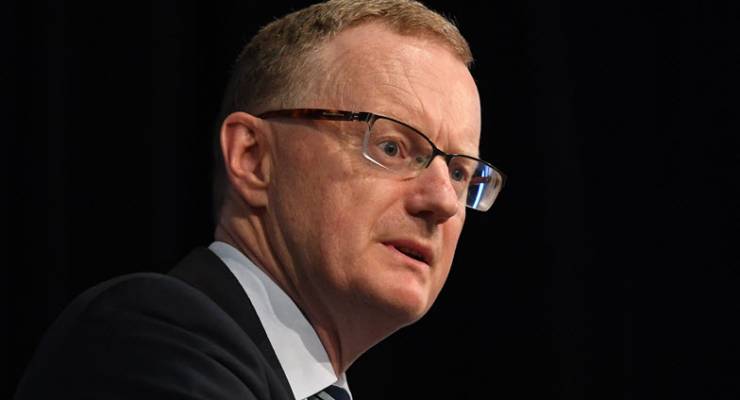
Tomorrow morning we’ll have the chance to hear from the regulators about the Commonwealth Bank’s money laundering scandal, when Reserve Bank governor Philip Lowe fronting the House of Representatives Economics Committee in Melbourne for the first public appearance by a key member of the country’s corporate regulatory quartet since the scandal broke a week ago tomorrow. Lowe chairs the Council of Financial Regulators, which consists of the Reserve Bank, Australian Prudential Regulation Authority, Australian Securities and Investments Commission and federal Treasury.
If the AUSTRAC allegations are any guide, Friday’s hearing could spend all of its time on the money laundering claims. Lowe might prefer to say he can’t discuss it because the matter is sub judice but AUSTRAC has only lodged a statement of claim, CommBank is yet to file a defence, the case has not been assigned a judge, and a directions hearing has not been scheduled. And it’s hard to argue CBA hasn’t admitted at least some guilt, given CEO Ian Narev and his main executive lost their 2016-17 incentive payments and levied a 20% cut (roughly $60,000 each) against the bank’s non-executive directors.
[Yes, we need a bloody banking royal commission]
Firstly we have to know which regulator knew first about the systemic problems at CBA and who told the others. We know the Australian Federal Police were involved from early on — they were the ones urgently emailing the bank about accounts being used to launder money, and they ended up raiding the bank in April last year. But how long was it before AUSTRAC informed the other regulators? And was anyone else informed of that AFP raid, as they surely should have been?
And what was the role of the Council of Financial Regulators regarding the AUSTRAC claims — if it knew, why it didn’t intervene through APRA to order the Commonwealth Bank to provide the information to AUSTRAC and to explain itself? Was AUSTRAC left to its own devices? Or if it wasn’t told, that raises questions for AUSTRAC and its interagency liaison processes.
There is also a time problem that remains unexplained: AUSTRAC says that from 2012 to mid-2015 “a period of three years, CBA did not comply with the requirements of its AML/CTF program relating to monitoring transactions on 778,370 accounts”. So what happened after that? Why has it taken to August 2017 for AUSTRAC to lodge its action? Why didn’t APRA, ASIC (especially these two) and or the Reserve Bank intervene to force the CommBank to address AUSTRAC’s allegations? Why has it taken two years for something to be done? Lowe can’t speak for AUSTRAC, but he can shed light on what the other regulators knew about AUSTRAC’s handling of the scandal.
[CommBank can’t spin its way out of money laundering crisis]
That AUSTRAC has gone to the Federal Court indicates that this was the agreed course of action by regulators (a second tier regulator/intelligence agency would not have started court action against one of the pillars of the financial system, which could lead to billion-dollar fines, without advising, and perhaps securing the agreement of, the major regulators).
AUSTRAC itself won’t be grilled until October, when agencies come to Canberra for supplementary estimates hearings, so many of these questions won’t be answered until then, if at all — the case against CBA will certainly not be concluded, and might not be settled, by then.
All the more reason for a royal commission into the banks, rather than relying on our highly secretive financial regulators to take their sweet time explaining what happened. Meantime, the spin continues — the latest angle is that Commonwealth Bank chair Catherine Livingstone is the new broom that is cleaning the bank up. Watch out for another typical trick of companies that have been found out breaking the law — the independent review, in which some eminent establishment personage is invited to give the all-clear to the bank’s current systems, hopefully consigning the whole issue to the past and the failures of a few, now-departed staff.
Not good enough.







Crikey is committed to hosting lively discussions. Help us keep the conversation useful, interesting and welcoming. We aim to publish comments quickly in the interest of promoting robust conversation, but we’re a small team and we deploy filters to protect against legal risk. Occasionally your comment may be held up while we review, but we’re working as fast as we can to keep the conversation rolling.
The Crikey comment section is members-only content. Please subscribe to leave a comment.
The Crikey comment section is members-only content. Please login to leave a comment.